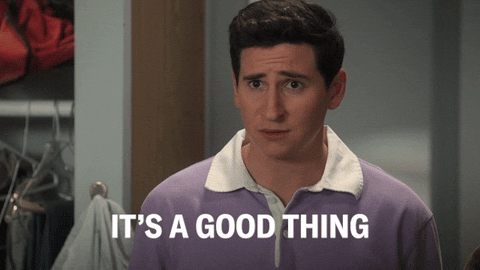Una de las expresiones más útiles en el inglés coloquial es «the thing is,» que se utiliza para introducir un hecho relevante que puede complicar una situación. A menudo, esta expresión aparece en conversaciones informales, permitiendo a los hablantes comunicar matices y condiciones de manera efectiva. En este artículo, exploraremos «the thing is» y otras expresiones relacionadas, como «the whole thing» y «the funny thing is,» que enriquecerán tu vocabulario y te ayudarán a sonar más natural al hablar en inglés.
The main thing
Empezaremos con una expresión muy común en lengua oral, the main thing, que significa «lo más importante en esta situación».
I don’t know how much money she earns but she’s happy and that’s the main thing.
The whole thing
Puede utilizarse para decir «todo lo relacionado con una actividad o situación»:
I love everything about teaching – the kids, my subject, being part of a team – the whole thing.
He had a really miserable few months there. I think he just wants to forget the whole thing.

The thing is
La expresión informal the thing is se utiliza antes de mencionar un hecho relevante en una situación dada, a menudo, porque este podría oponer dificultades:
I’d invite Olivia too but the thing is, she doesn’t get on with Lucy.
I’d join you but the thing is, I have to be home by nine o’clock.
The funny / sad / strange, etc. thing is
Antes de mencionar un aspecto concreto de alguna situación, puedes utilizar the funny / sad / strange, etc. thing is:
She made us go to this really expensive restaurant, but the funny thing is, she ate almost nothing.
The sad thing is, he died before his company became a great success.
Is that a thing?
La gente a menudo pregunta si algo nuevo o extraño en que acaban de reparar es una tendencia diciendo is that a thing?
So, socks and sandals on men – is that a thing now?
También puedes decir que algo que hace la gente es a thing, queriendo decir que se trata de una tendencia:
Putting butter in your coffee. Apparently, it’s a thing now.
It’s a boy / girl / vegan, etc. thing
Si alguien no entiende algo que has mencionado, puedes ofrecer como explicación It’s a boy / girl / vegan, etc. thing. Con esto estarías diciendo que es algo que solo es conocido por un grupo específico de personas:
What was that word you used – ‘aquafaba’?’ ‘Yeah, it’s bean water. Don’t worry, it’s a vegan thing’.
Is onto a good thing
Si dices que alguien is onto a good thing, lo que quieres decir es que ese alguien ha descubierto una forma de vivir una vida fácil o de ganar muchísimo dinero:
He just assumed she was wealthy and thought he was onto a good thing.
It’s a good thing
Si dices que it’s a good thing que algo haya pasado, lo que quieres decir es que ha sido una suerte que pasara:
It’s a good thing we got tickets early. They’re sold out now.

One thing after another
Si has experimentado muchos problemas en un breve espacio de tiempo, puedes decir que ha sido one thing after another:
The last few weeks have been so difficult. It’s been one thing after another.
Does their own thing
Alguien que does their own thing hace lo que desea hacer sin tener en cuenta a los demás:
Tom’s very independent – he’s always done his own thing.
Poor, sweet y lucky thing
Thing se utiliza a menudo detrás de adjetivos como poor, sweet y lucky, para referirse a una persona o animal:
That’s a horrible cough, you poor thing!
You’re not working this week? You lucky thing!
Have you seen Amy’s new puppy – it’s such a sweet little thing!
Things
Por último, el plural things se utiliza frecuentemente con el sentido de «la vida en general»:
Things have been going pretty well recently.
How are things, then?





